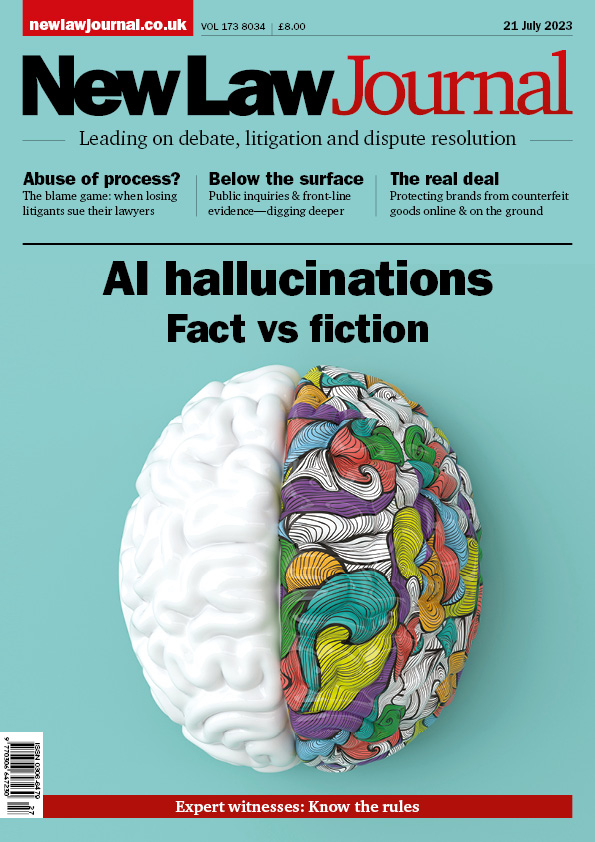THIS ISSUE

Artificial intelligence (AI) tools are known to ‘hallucinate’, making up false information or confabulating to fill gaps in their knowledge. But who is responsible in law for any libel or harm caused as a result? In this week’s NLJ, Chloe Flascher, associate at Withers, addresses this fascinating conundrum.
In this week’s NLJ, Richard Scorer, head of abuse law & public inquiries at Slater and Gordon, highlights the necessity of ‘proper forensic scrutiny’ during public inquiries.
A recent employment appeal concerning a teacher dismissed for expressing gender-critical views on Facebook is a significant development in employment law because the Employment Appeal Tribunal (EAT) focused on the ‘reason why’ question. In this week’s NLJ, Charles Pigott, professional support lawyer, Mills & Reeve, explains why the EAT’s approach ‘marks a significant development’ for discrimination claims, breaking new ground.
'Litigants who lose sometimes blame their lawyer' is a truth widely acknowledged in the legal sector. Writing in this week’s NLJ, Michael Bundock, barrister, dispute resolution, LexisNexis, looks specifically at the circumstances in which a negligence claim may be struck out as an abuse of process because it involves a collateral attack on the earlier judgment.
Public inquiries are most effective when their scrutiny goes below the surface, writes Richard Scorer
A recent Employment Appeal Tribunal ruling on gender-critical beliefs has brought human rights to the fore: Charles Pigott analyses a significant development for discrimination claims
What next when a disgruntled litigant decides to sue their lawyer for negligence after losing a case? Michael Bundock examines when such a claim may be struck out as an abuse
Neil Parpworth outlines the latest thinking—& some potential inaccuracies—from the Home Office on stop & search powers
Billions are spent on counterfeit goods in the EU & UK each year: Matti Lindberg & My Mattsson set out some top tips for brand owners to protect their rights online & on the ground
Artificial intelligence tools are not (yet) above creating false information: who could be liable for the serious harm suffered as a result of publishing that information? Chloe Flascher examines a thorny legal issue
MOVERS & SHAKERS

Muckle LLP—Rachael Chapman
Sports, education and charities practice welcomes senior associate

Ellisons—Carla Jones
Partner and head of commercial litigation joins in Chelmsford
.tmb-mov69x69.jpg?sfvrsn=3d1684d4_1)
Freeths—Louise Mahon
Firm strengthens Glasgow corporate practice with partner hire
NEWS
One in five in-house lawyers suffer ‘high’ or ‘severe’ work-related stress, according to a report by global legal body, the Association of Corporate Counsel (ACC)
The Legal Ombudsman’s (LeO’s) plea for a budget increase has been rejected by the Law Society and accepted only ‘with reluctance’ by conveyancers
Overcrowded prisons, mental health hospitals and immigration centres are failing to meet international and domestic human rights standards, the National Preventive Mechanism (NPM) has warned
Two speedier and more streamlined qualification routes have been launched for probate and conveyancing professionals
Workplace stress was a contributing factor in almost one in eight cases before the employment tribunal last year, indicating its endemic grip on the UK workplace







